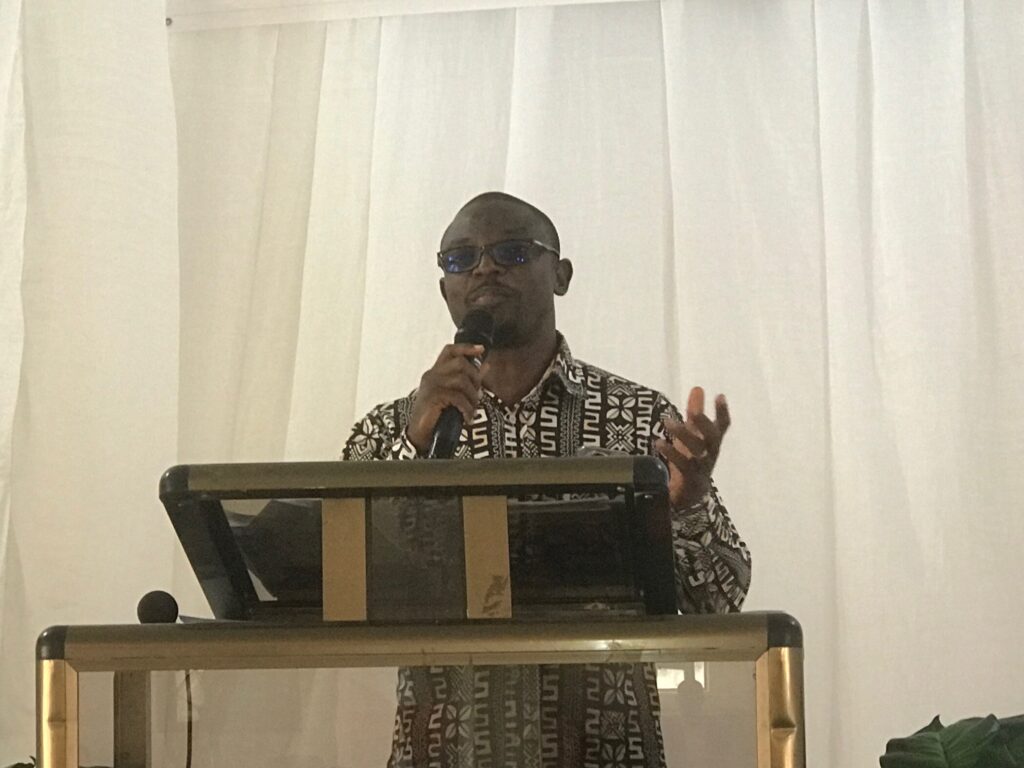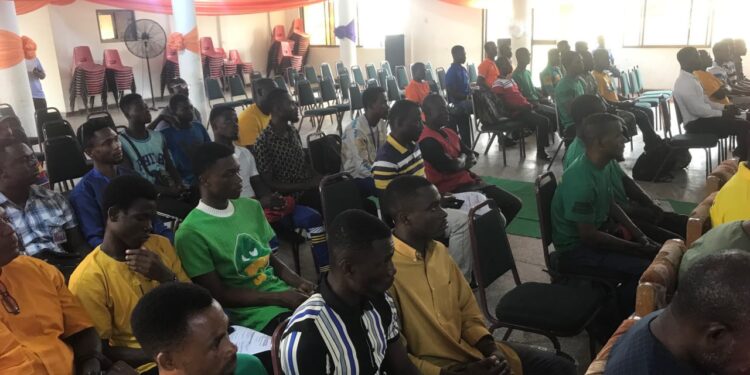The Artisans’ Association of Ghana (AAG) has held its first-ever Annual General Meeting (AGM) and Conference.
Held at the GNAT Hall in Cape Coast, the event brought together artisans, industry leaders, government officials, and stakeholders to discuss the future of artisanal skills in Ghana and how they can contribute to national development.
With the theme “Skilling the Future: Enhancing Artisanal Skills for National Development”, the conference underscored the vital role artisans play in the Ghanaian economy, highlighting the potential of skill enhancement to drive sustainable growth, job creation, and poverty reduction.

The gathering provided a platform for a robust exchange of ideas on how to improve the training, recognition, and empowerment of artisans across various sectors.
In his opening address, the President of the Artisans’ Association of Ghana, Mr. Gideon Bidor, emphasized the need for formalizing and modernizing artisanal work.
He noted that while the sector has historically been overlooked, it remains an indispensable part of the country’s economic fabric, contributing significantly to employment and local craftsmanship.
Highlighting some achievements of the association as AAG linking more than 10,000 members to join the professional engineering institutions in Ghana and partnering with Cape Coast technical University and IET to train 100 artisans with the Central Region, he called for increased investment in technical education and vocational training to prepare the next generation of skilled artisans to meet the challenges of a rapidly evolving global market.

Keynote speaker, Prof. Jonas Ekow Yankey, Vice Dean, School of Built and Natural Environment at Cape Coast Technical University pointed out that enhancing artisanal skills is not only crucial for individual empowerment but also for creating a competitive workforce that can drive industrialization and attract international investment.
He also stressed the importance of building strong links between artisans and other sectors, such as tourism, construction, and manufacturing, to create more integrated value chains.
According to him, the construction industry contributes between 7-8% of Ghana’s GDP and employs over thousands of people adding that, representing about 85% of the manpower needs in the industry, the role of artisans in national development cannot be over emphasized.
He said there was a need for innovative solutions to bridge the gap between traditional craftsmanship and modern technological advancements.
Participants engaged in networking sessions and workshops that provided practical insights into improving business management skills, marketing techniques, and access to finance.
The conference also included a special segment on youth empowerment, with a focus on attracting young people to the artisanal sector.
Source: Anthony Sasu Ayisadu/ATLFMNEWS


























